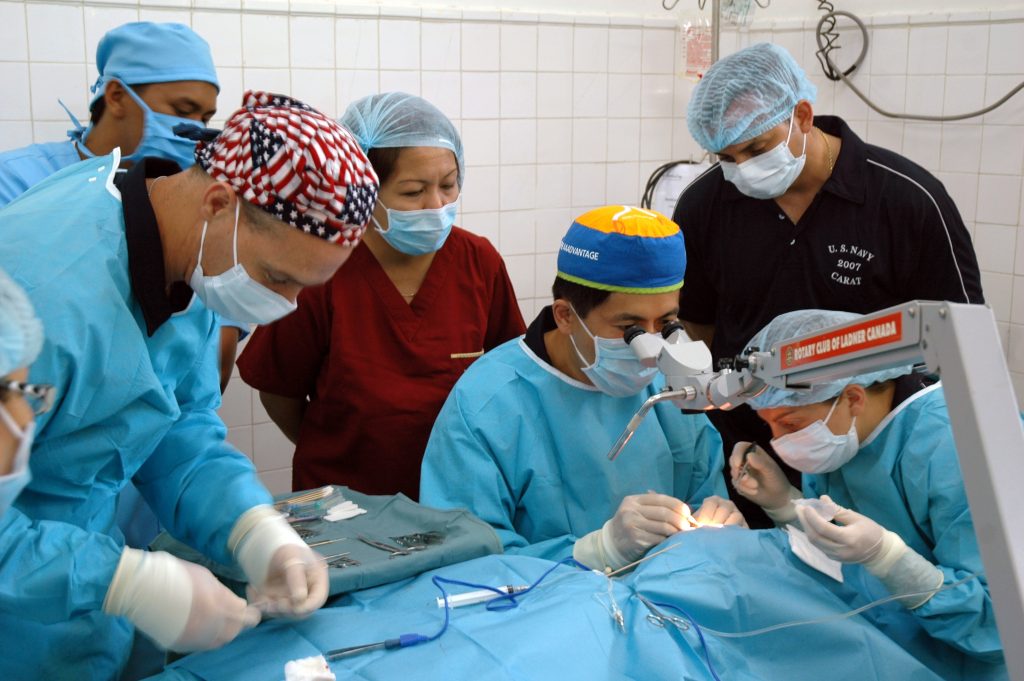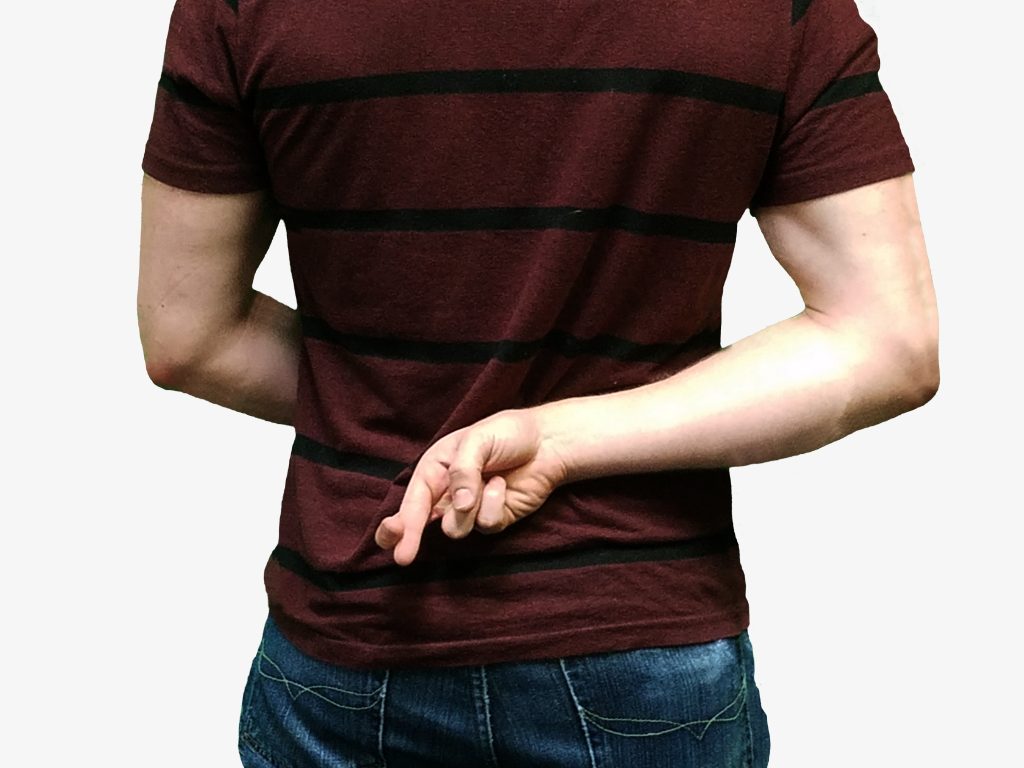 Undergoing a surgery is always a nerve-wracking experience. You want to be able to trust that your surgeon conducted and reviewed the appropriate pre-operative tests. Can a surgeon be held liable if he or she fails to review the results of the pre-operative tests before performing the surgery?
Undergoing a surgery is always a nerve-wracking experience. You want to be able to trust that your surgeon conducted and reviewed the appropriate pre-operative tests. Can a surgeon be held liable if he or she fails to review the results of the pre-operative tests before performing the surgery?
Roger Burchfield was admitted to Willis-Knighton Medical Center to receive non-emergency surgery on his gallbladder. Before the surgery, Burchfield’s surgeon, Forrest Wright, ordered a chest x-ray and EKG. However, Wright did not review the results prior to performing the surgery. If Wright had reviewed the tests, he would have seen Burchfield had congestive heart failure and multiple other possible heart issues. Burchfield himself did not know he had these heart issues.
The surgery was successful, and Burchfield went home. However, about a day later, Burchfield started experiencing swelling. He went to the emergency room and was admitted into the hospital. The hospital found Burchfield had suffered a heart infection, respiratory failure, heart failure, and other issues. He was put in a medically induced coma before undergoing a heart transplant. Although Burchfield recovered from the transplant, he was no longer able to work as a mechanic and requires medical care for the transplant for the rest of his life.
 Louisiana Personal Injury Lawyer Blog
Louisiana Personal Injury Lawyer Blog


 Although money can never replace a loved one, if you find yourself in the tragic aftermath of a loved one’s death, you might be looking to recover damages from the responsible parties. However, the process of recovering damages can be difficult and emotionally charged. This is especially true if an insurance policy is involved and the insurer argues it is not required to provide coverage.
Although money can never replace a loved one, if you find yourself in the tragic aftermath of a loved one’s death, you might be looking to recover damages from the responsible parties. However, the process of recovering damages can be difficult and emotionally charged. This is especially true if an insurance policy is involved and the insurer argues it is not required to provide coverage.  When receiving medical care, the choice of medical professional can influence your treatment. If you have been injured on the job, you might not be sure if you can pick your own doctor or if you have to use a doctor your employer selects. Under the Louisiana Workers’ Compensation Act, an injured worker is entitled to select a physician in any specialty for an initial visit. The employer is not required to approve the employee’s choice of physician. What happens if the employer claims the employee was not injured on the job?
When receiving medical care, the choice of medical professional can influence your treatment. If you have been injured on the job, you might not be sure if you can pick your own doctor or if you have to use a doctor your employer selects. Under the Louisiana Workers’ Compensation Act, an injured worker is entitled to select a physician in any specialty for an initial visit. The employer is not required to approve the employee’s choice of physician. What happens if the employer claims the employee was not injured on the job?  If you prevail in a lawsuit, you might be entitled to various damages. One type of damages available in Louisiana is
If you prevail in a lawsuit, you might be entitled to various damages. One type of damages available in Louisiana is  Depending on the outcome of a trial, when the jury renders its verdict, you might be excited or sad. No matter how you feel, you must review the trial court’s judgment to ensure it is sufficiently precise and definite to meet the requirements for a final judgment.
Depending on the outcome of a trial, when the jury renders its verdict, you might be excited or sad. No matter how you feel, you must review the trial court’s judgment to ensure it is sufficiently precise and definite to meet the requirements for a final judgment.  If you slip and fall at a car dealership because of wet floors, you might think you have a slam dunk case. However, if the condition that caused your fall might be considered open and obvious, you could face an uphill battle.
If you slip and fall at a car dealership because of wet floors, you might think you have a slam dunk case. However, if the condition that caused your fall might be considered open and obvious, you could face an uphill battle.  What are the consequences of lying in a workers’ compensation claim? They can be harsh, as shown in the following lawsuit. Betty Reeder, a Certified Nursing Assistant (CNA) at Hardtner Medical Center, found herself embroiled in a legal battle after suffering an injury on the job. This article examines the details of the lawsuit, delves into the relevant Louisiana workers’ compensation law, and analyses the Appeals Court decision that shaped the outcome.
What are the consequences of lying in a workers’ compensation claim? They can be harsh, as shown in the following lawsuit. Betty Reeder, a Certified Nursing Assistant (CNA) at Hardtner Medical Center, found herself embroiled in a legal battle after suffering an injury on the job. This article examines the details of the lawsuit, delves into the relevant Louisiana workers’ compensation law, and analyses the Appeals Court decision that shaped the outcome. What happens when a final judgment from a court lacks precise language as to the damages you should be awarded? The First Circuit Court of Appeals answers this question and explains the importance of precision and certainty in all civil case language.
What happens when a final judgment from a court lacks precise language as to the damages you should be awarded? The First Circuit Court of Appeals answers this question and explains the importance of precision and certainty in all civil case language. The discovery process of litigation is vital to a well-informed judgment rendered by the court. But discovery can be halted, disrupted, or dismantled by various motions. Finding and gathering all the necessary information in a lawsuit is incredibly important for all sides. Still, it requires showing a need for that information and the presence of facts in dispute. Identifying and presenting disputed facts of a case is necessary to help protect your case from a summary judgment dismissal.
The discovery process of litigation is vital to a well-informed judgment rendered by the court. But discovery can be halted, disrupted, or dismantled by various motions. Finding and gathering all the necessary information in a lawsuit is incredibly important for all sides. Still, it requires showing a need for that information and the presence of facts in dispute. Identifying and presenting disputed facts of a case is necessary to help protect your case from a summary judgment dismissal.  In the face of the profound loss that accompanies the passing of a family member, the impact can be particularly agonizing when that loss follows the anticipation of medical intervention, such as a transplant. The immediate inclination might be to explore legal avenues through a medical malpractice claim, yet the determination of whether negligence played a role can be an intricate matter for the average individual. This Louisiana case shows how important it can be to obtain expert testimony to help show malpractice occurred.
In the face of the profound loss that accompanies the passing of a family member, the impact can be particularly agonizing when that loss follows the anticipation of medical intervention, such as a transplant. The immediate inclination might be to explore legal avenues through a medical malpractice claim, yet the determination of whether negligence played a role can be an intricate matter for the average individual. This Louisiana case shows how important it can be to obtain expert testimony to help show malpractice occurred.